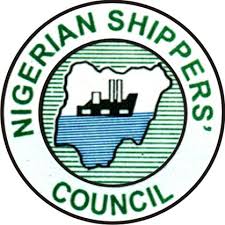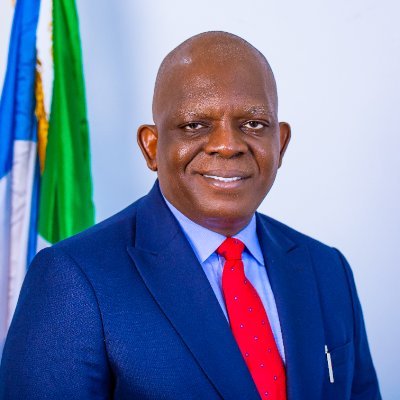01 February 2016, Lagos – The Manufacturers Association of Nigeria (MAN) has insisted that the International Cargo Tracking Note (ICTN) levy being reintroduced by the Nigerian Shippers’ Council, NSC, be scrapped.

Cargo tracking is a global initiative put in place to monitor and verify cargoes on transit. It is mandatory for all International Maritime Organisation member-countries. In US, it is called 24-hour rule; in Europe it is known as EU Advanced Cargo Declaration; China, 24-hour Advanced Manifest Regulation, etc.
Investigations by Financial Vanguard reveals that the policy was first introduced in Nigeria in 2010 and implemented through the Nigeria Ports Authority, NPA. However, it was discarded by the Federal Government in 2013 on the request of the operators in the manufacturing sector due to additional cost to cargo clearances at the ports.
Last year, it was reintroduced and given to NSC for implementation on behalf of the Federal Government via a letter reference no. T.0160/S.30 T4C dated 14th May 2015. President Muhammadu Buhari approved its take-off from November, 3, 2015 at the nation’s ports. Following this, a period of one month starting, from November 3rd to December 3rd, was given to all maritime stakeholders to comply with full registration.
Financial Vanguard learnt that MAN had earlier opposed the bid to reintroduce the Cargo Tracking Note, asserting that the CTN now christened ICTN, if reintroduced, will drive up the cost of cargo clearance at the ports and have a negative trickle-down effect on businesses.
Dr. Frank Jacobs, President of MAN, while giving an update on the contentious issue during MAN annual media luncheon held in Lagos, said NSC should stop pushing the policy.
“They opposed the policy in the last administration, why are they pushing for it to be reintroduced again? We are currently negotiating with the Shippers Council and clearing agents and other organisations that are associated with the maritime sector with a view to coming up with a decision that will be acceptable to everyone. When I said we are negotiating with them, I do not mean we are negotiating to lower the levy, rather, we want them to kill the policy permanently,” he said.
According to him, as a result of MAN’s protest, government discarded the policy in 2013. “ Now people went through the back door and try to do the same thing again this time, but we kicked, now we are discussing with them; they said it is going to be of no cost to manufacturers but in the course of discussion, shippers said they won’t bear the cost burden, that it is the customers such as MAN that will bear the cost; so we are still negotiating,” he declared.
Remi Ogunmefun, MAN’s Director General, also emphasised that manufacturers in the country are against reintroduction of the CTN as currently crafted until the issue of where the cost burden lies in its implementation is addressed. According to him, despite weighty reservations expressed by manufacturers at different fora, NSC is bent on reintroducing the CTN.
“This position was reached based on observed limitations, and others yet to be addressed observed lapses that motivated the call for its cancellation few years ago. “The rationale for our dissatisfaction was expressed at a special meeting with the management and Governing Board of NSC and a follow-up technical review session on August 11 and 20, 2015.
Deliberations from the afore-mentioned meetings were formally communicated in writing to the Executive Secretary of the Nigerian Shippers Council on September 15, 2015.
Consequently, he said that manufacturers recommended that NSC should convene a broader stakeholders’ forum that will afford all operators on the maritime value chain, especially those that would carry the cost burden of CTN to technically x-ray its proposal to re-introduce CTN and agree on a mutually beneficial implementation guideline.
However, for avoidance of doubt, it is expedient to restate the position of MAN National Council as follows: *That the limitations and technical lapses that rendered the CTN unacceptable to Maritime stakeholders and Real sector operators that led to its previous rejection are very much present in the Advanced Cargo Tracking Notes, ACTN.
*That the ACTN implementation comes with associated cost that will further increase burden of exorbitant cost of doing business for manufacturers who rely on imports for raw materials and machines. This will automatically add to the already suffocating cost structure and renders locally made goods uncompetitive.”
However, Mr. Hassan Bello, the Executive Secretary, NSC, disclosed that before approving the ICTN, the Federal Government had seen the enormous revenue leakages that were going on, both in the importation of dry cargoes and the exportation of wet cargoes. Bello said that, apart from blocking revenue leakages, the ICTN is also needed for security reasons.
Bello said that the ICTN does not come with additional cost to importers or exporters, rather the administrative cost is to be paid by the shipping lines, whom he said had for long inputted the cost in the bills they give to consignees in Nigeria. “The shipping lines have been billing importers and exporters for it, and they do not want to let go, they have been hiding such cost on the final bills given to Nigeria importers to pay”, he added.
The ICTN, Bello said is already part of payments that are already being made by importers to the shipping lines or the carrier. “Whether the Shippers’ Council introduces cargo tracking note or not, shipping companies will continue to collect this taxation, the $25 per container and all the other listings are expected to come from the already existing freight taxation collected by the shipping lines on Nigerian freight.
The ICTN comes out of payments that are already collected or payable per consignment, it is already included as part of the consignee’s payments,” he said. According to him, the administrative cost of implementing the ICTN in Nigeria is very low compared to what is paid in other West and Central African countries. He disclosed that, in some West and Central African nation, they collect as much as 65 Euros per TEU, while the lowest cost is 35Euros.
“The ICTN in Nigeria is different from those being implemented in West and Central Africa, ours is Advance Cargo Declaration that gives you a column where you must put the BAF (Bunker Adjustment Factor) CAF (Currency Adjustment Factor) you must tell us what the surcharge is -whether it is GRI (General Rate Increase) which shipping companies do from time to time and they hide it, when you go for a shipping invoice they will give you a lump sum, it doesn’t tell you what the GRI or what the basic freight is.”
“Here in Nigeria, we are charging $25 per TEU, which is less than a quarter of the 65Euros charged by other countries, but they are not worried about that because they know that Nigeria controls 75 per cent of the cargoes”, he stated.
According to the Council, under the ICTN, containers attract a fee of $25 per unit, Roro vehicles, $10 per unit, break bulk cargoes attract $0.2 per unit, while conventional/groupage cargo attracts a fee of $1 per freight ton. Similarly, while crude oil export attracts $0.1 per ton, both empty containers and non-crude oil exports attract no fee.
In his own reaction, the National Association of Government Approved Freight Forwarders (NAGAFF) applauded the re-introduction of the CTN platform, saying it would enhance the efficiency and security of port operations.
Dr. Boniface Aniebonam, the founder of NAGAFF, said “the good thing about CTN now is that it attracts no cost. CTN is a global initiative put in place to monitor and verify cargoes on transit. And the initiative has the blessings of the IMO and the World Customs Organisation (WCO), which Nigeria is a member. It has a lot of security and safety values for shippers and other agencies of the government.”
- Vanguard



